“This wasn’t the book I wanted to write,” says Dominican Sister Laurie Brink about her recent book, The Heavens Are Telling the Glory of God (Liturgical Press). “It was the book I was compelled to write.”
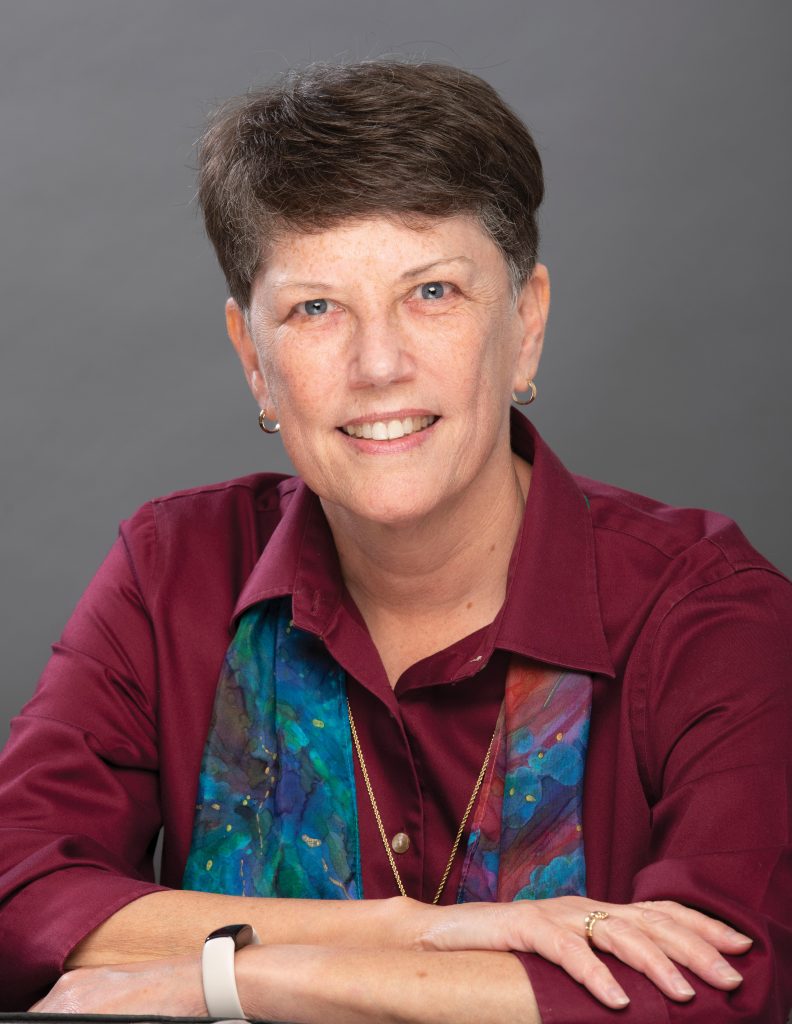
Brink originally set out to explore how what is known as the new cosmology—a way of thinking about the universe that integrates both evolutionary science and theological commitments—serves as a lens for reinterpreting religious life. But she quickly found that this theological model, which was foundational in understanding her own vocation and relationship with God, was not so meaningful for other women religious. In an attempt to better understand the role the new cosmology plays among communities of women religious, Brink conducted a national survey and collected responses from 215 women on questions ranging from demographic data to their thoughts about the new cosmology to its impact on their faith lives.
What was surprising, for Brink, were the generational differences she found. Although almost all of her survey respondents were familiar with the new cosmology, those who found it most important to their discernment tended to be white Baby Boomer women. Other demographics were more likely to find the language of the new cosmology distracting or understand the relationship between science and faith in other ways. “We don’t always talk the same language,” Brink says. “There seems to be a disconnect between what one generation is saying and thinking about the church and Christ and what the emerging generation (i.e., Millennials and Gen Z) is saying and thinking. For the good of the future of religious life, I needed to reconcile these differences and see how we can recognize that we’re really on the same page; we’re just using different language.”
What is the “new cosmology”?
New cosmology draws on the thought and work of Jesuit philosopher and paleontologist Pierre Teilhard de Chardin. It highlights the importance of evolution, both in the cosmological sense and on Earth, and understands that we are moving toward greater complexity: The evolutionary pattern is from one-celled organisms to more complex organisms. Likewise, there is a sense of consciousness developing and becoming more complex.
This has implications for life in community. For Teilhard de Chardin and for those influenced by him, there is this idea of something emerging that we are already a part of. The question is how we understand this in light of the developing science. How do we hold our theological traditions up in the light of science and make sense of them?
How has this way of understanding influenced communities of women religious?
I think the new cosmology is significant for a certain segment of women religious—this is part of what my survey measured and what I laid out in my book. For sisters of color or Latina sisters, the new cosmology is not that significant for their understanding of religious life. But for white women religious of a certain generation, it has been very helpful in giving them an avenue to understand themselves and their developing spiritualities.
Many of these sisters rode the wave of the Second Vatican Council and had this amazing experience of moving from religious life in a more traditional sense to having the world open up to them. At the same time Vatican II was changing the church, there was also the development of the civil rights movement and feminism, so it was a very heady time, particularly in the United States.
And as these women religious were experiencing that, there was this sense that some of the more traditional ways of viewing God, the work of Jesus, and the church didn’t fit in with their experience. In other words, what they were learning didn’t match with what they had been taught. They needed a frame of reference that spoke to their own spirituality.
I think this is why the new cosmology appeals to a certain group who have had similar experiences. It speaks to their emergent spirituality—their sense that God calls us into deeper relationship with God. Many of these women came to know God by different names and through different experiences that simply could not be contained in the basket they had before. New cosmology offers a different way of looking at being the body of Christ, a different way of looking at the reign of God. There’s an expansiveness to it, and that’s attractive.
Is understanding faith through science new? Historically, how have women religious shaped their vocations in light of scientific discoveries?
My own congregation, the Dominican Sisters of Sinsinawa, was founded in 1847. Our founder was an Italian Dominican who believed that women should be educated. He brought in all different kinds of scientific equipment—some that not even the Smithsonian has today—and, with the sisters, established a college for young women. The students weren’t just taught decorum; they were taught science, math, and language. So scientific discovery has always been an important part of my congregation’s history.
Indeed, many of the women’s congregations that developed in the 1800s in the United States focused their ministries on education and nursing. And if you’re going to be involved in medicine, you can’t close yourself off from what the medical field is discovering. I think that women religious who are apostolic—out in the communities doing work—have to be alert to developing knowledge in order to be effective in their ministries. That’s not new.
When we place so much importance on science and how knowledge evolves, does that change how we think about Jesus?
If we’re all evolving, the question becomes: What was the point of the incarnation? We don’t understand original sin the same way through this evolutionary lens.
Teilhard de Chardin talks about the “cosmic Christ,” or the point toward which everything is evolving. It is this omega point at which we—all of creation—will be fully unified in God. Teilhard de Chardin has several steps involved in moving toward this, but basically he says that all of us are moving toward great complexity, toward greater unification. The historical Jesus points us toward the cosmic Christ. He doesn’t deny the value of the historical Jesus, but the cosmic Christ is the direction toward which the resurrected Jesus points us.
This is a really different way to understand Jesus. But I think the problem is not necessarily defining who Jesus is or how we think about Jesus. The problem is when we don’t ask the questions at all—when we stop wondering where Jesus is in our world.
I hate to admit this, because I’m a Dominican, but the Franciscans had a handle on this way back when. Franciscan John Duns Scotus and some other early Franciscans write about creation as good. It says this in Genesis: Creation is good. This means that the incarnation would have happened regardless of whatever mistakes we made, however sin came into the world. God was always going to send Jesus to be part of this world. In the mind of God, Jesus was always going to be part of the created world, sent to bring us closer to God. What we think about science or cosmology doesn’t change that. Instead, science can verify these insights about our tradition.
This seems like an optimistic view of the universe—that we are constantly moving toward union with God. Does it consider some of the world’s big evils—racism, environmental degradation, etc.—that may seem like steps away from God?
Darwin created this tree of evolution showing what was connected to what, and there are some branches that just stop. He recognized that there are some species that don’t continue to evolve: They just stop. If we take that imagery, there are folks who stop evolving as well, whether they freeze their faith life at confirmation or whether they stop growing when it comes to their understanding of political orientations. Using Darwin’s tree as a metaphor, sometimes we stop moving forward.
The Franciscans never said there wasn’t sin, which means we have free will. We’re still going to make choices, and our choices are not always best for the broader community. This is true both on a personal level and institutionally. Racism is a prime example. How we treat people who want to be part of the United States is another. We have free will to make decisions about this, and that helps decide whether our “branch” is going to evolve or not.
What does it look like to apply the new cosmology to the work that women religious do in the world?
Sister of the Immaculate Heart of Mary Sandra Schneiders distinguishes theology and spirituality: Theology is our reflection on experience, while spirituality is living out our theology in light of our experience. Spirituality is, for lack of a better metaphor, boots on the ground.
Most folks in the pews are never going to encounter the term cosmic Christ—it wouldn’t be helpful to them. But if that is something I’m aware of—in the sense of the impact of evolution and the connection of each individual to larger systems—that affects how I operate on the pastoral level with individuals who may or may not hold my theological perspective.
That looks really practical to me: It’s reminding people of why we care about the environment and the practical elements of Laudato Si’ (On Care for Our Common Home). It’s about how we show care for all living things. A really simple thing I’ve done in my classes is give paper bags to everybody and send them to pick up garbage in the street. This simple act is a profound witness, because people walk by and ask them what they are doing and why. There are also programs like the Laudato Si’ Action Platform, which is a seven-year program where Rome has invited Catholic institutions to actualize the principles of Laudato Si’. Actualizing these principles makes this emerging theology real for folks.
How has new cosmology helped you understand community differently?
There’s this idea of emergence in evolutionary science. Emergence theory is ridiculously complex, but what I find really helpful is that true emergence is a novel thing that’s going to affect evolution: It is a qualitative novelty that is not disconnected from the past. For example, turtle shells or the evolution of the eye were examples of emergence. Another example is a snowflake: It requires water and temperature change, so whatever emerges is intimately connected with what came before, but each snowflake is an entirely new thing. For me, this helps me think of religious community. The traditions that shaped each congregation and our church as a whole are still part of who we are becoming. We don’t jettison them or throw the baby out with the bathwater.
Another aspect of emergence theory is that we are gradually working toward becoming whole—what scientists call holism. All compounds and living things gravitate toward one another. That fits really well with how I understand community: We often say in my local community that together we make a whole person. We each bring our different skills, gifts, or limitations, and together we are better than we are separately.
Another idea I find really meaningful is entanglement, what Einstein calls “spooky action at a distance.” It’s this really inexplicable finding that certain electrons are connected in some way: Even when they are separated across miles, they interact in related ways. When you think about it, isn’t that what we hope happens as people of faith? That we become entangled, that we are connected with everyone and that we all together become more whole and more holy as a people of God.
I think that science helps us understand that local community has three elements: it’s essential, emergent, and expansive. Essential means it has to meet our basic needs. We have to live and witness as unrelated adults living together under one roof, and the essential aspects involve how we reconcile, deal with difficulties, and live peaceably together. Emergent means how we answer the call of the world. How do we hear the cry of the poor and act on it? And the final part is expansive. There are folks who are desirous of living in community but who may not want to make vows. We have a Dominican volunteer program where volunteers live and minister with the sisters. How do we look at this and other new models of welcoming people into our community?
When we think of community in this way, informed by evolutionary principles and the new cosmology, community becomes a profound witness against the polarity that surrounds us. We are trying to live as a reconciled group, loving one another despite our mistakes and our faults and learning to live in a way that bears witness both to the historic Jesus of Nazareth and the trajectory toward which we are heading.
How can people use this reflection to deepen their own understandings of vocation?
We all have a vocation, and we’re all invited and encouraged to live it out the best we can. That was one of the messages of Laudato Si’: The pope presents this gift and tells us, “The world’s in crisis, and whoever you are, you can do something about it.”
In religious life, we’re really fortunate, because we have this rich tradition and history and can discern our vocation in the context of community. If I forget, there’s someone to remind me. But sometimes lay folks don’t have this reminder, depending on their parish communities. I think connecting with others on your faith journey—no matter where you find that—is important. We are not meant to be alone in our search for God. It’s like that old saying: When you get to God, God is going to ask, “Where are the rest of them?” This isn’t a solo journey; we’re supposed to be doing it together.
This article also appears in the June 2023 issue of U.S. Catholic (Vol. 88, No. 6, pages 16-20). Click here to subscribe to the magazine.
Image: Unsplash/Greg Rakozy


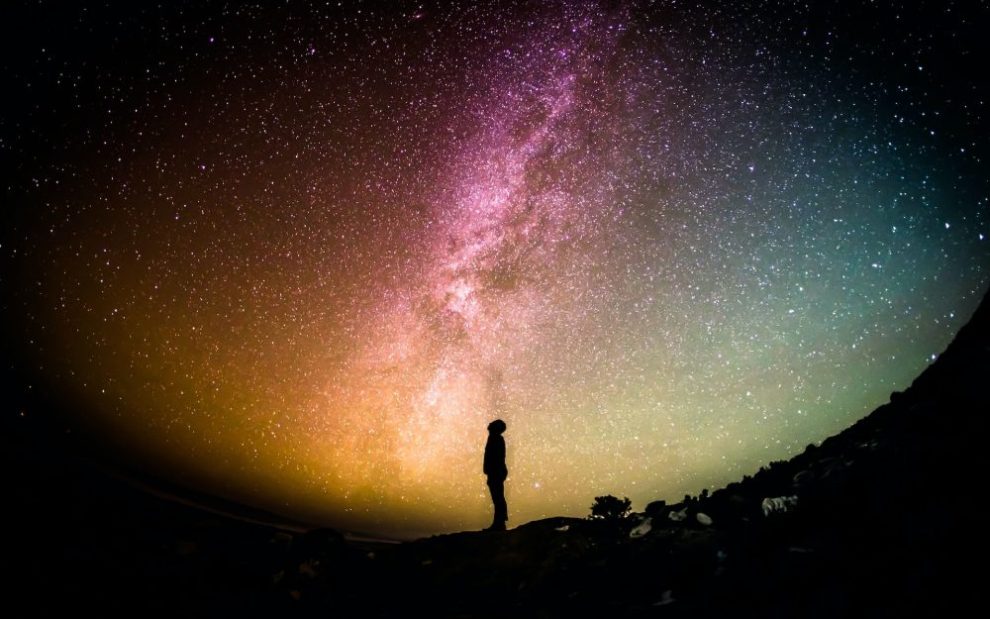




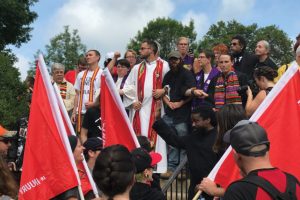
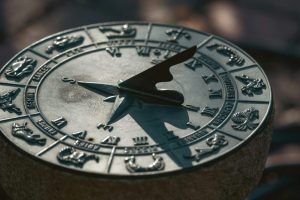
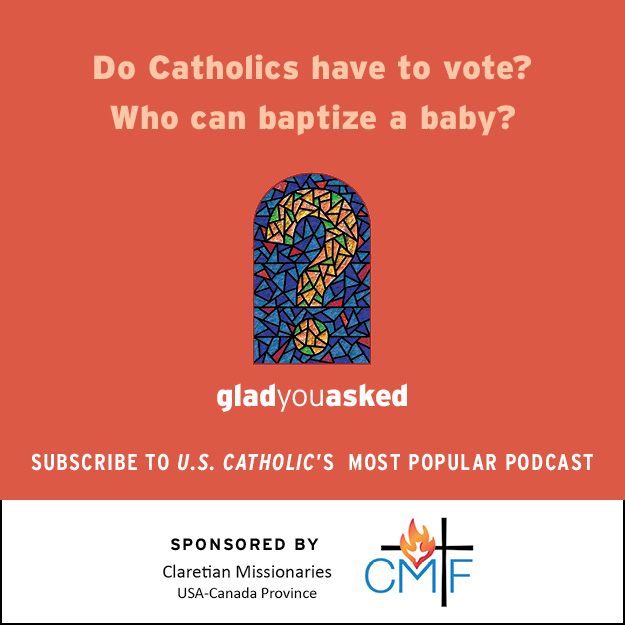
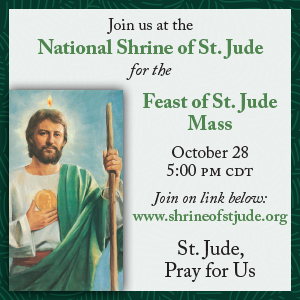




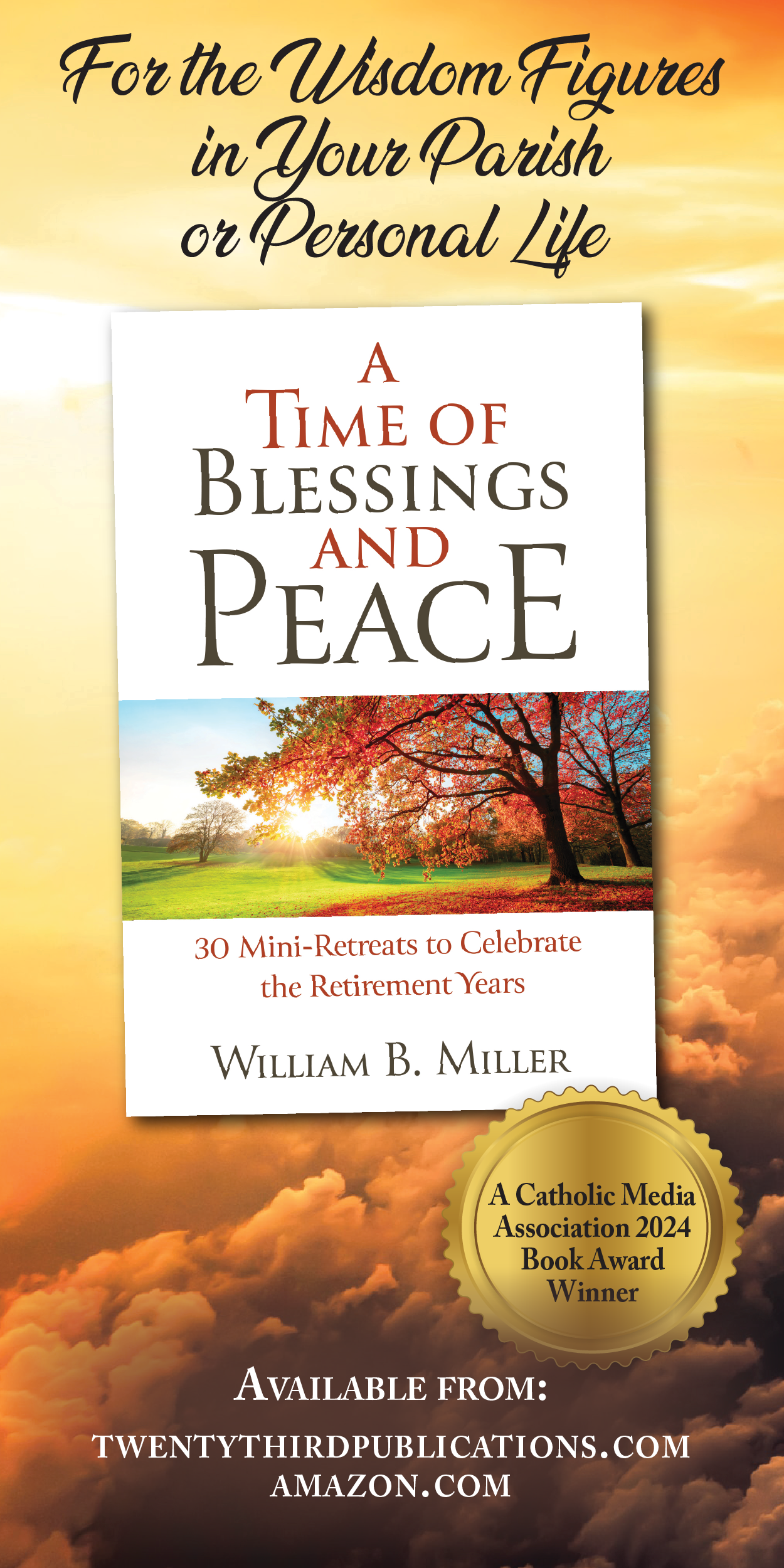

Add comment